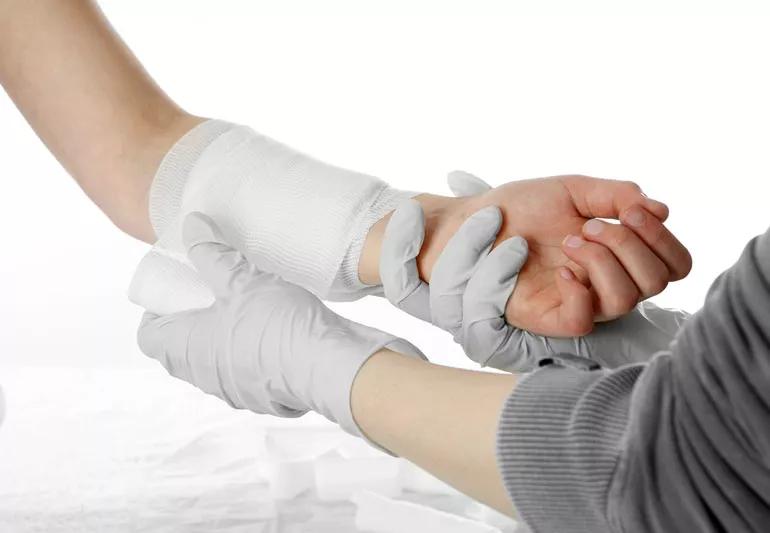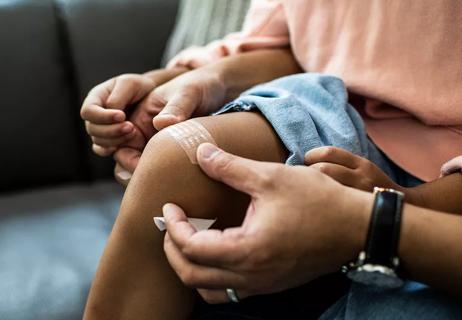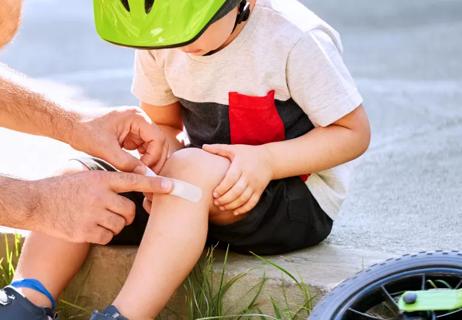Three common causes of chronic wounds

If you have a sore or wound that lingers over a period of weeks or months, it’s time to see your doctor. A chronic wound can lead to dangerous complications, but there are a number of treatment options to help avoid more serious problems.
Advertisement
Cleveland Clinic is a non-profit academic medical center. Advertising on our site helps support our mission. We do not endorse non-Cleveland Clinic products or services. Policy
Chronic wounds, by definition, are sores that don’t heal within about three months. They can start small, as a pimple or a scratch. They might scab over again and again, but they don’t get better.
If you have a sore or wound that follows this pattern, it’s a red flag that you should consult a physician to start a care plan, says plastic surgeon Christi Cavaliere, MD, Medical Director of Wound Care.
“A comprehensive approach is really what makes the difference in getting healed,” she says. “So, people must get the comprehensive care they need from a primary care physician, a plastic surgeon, a podiatrist, a vascular surgeon or a wound center.”
While cancer can sometimes present as a chronic wound, chronic wounds typically fall into three main categories: diabetes-related ulcers, venous leg ulcers and pressure ulcers.
People who have diabetes are at greater risk for chronic wounds. Several factors contribute to this, including:
Advertisement
To control chronic wounds, people with diabetes should make sure they’re eating enough protein, hydrating properly and maintaining control of their blood sugar levels. It is also important to wear shoes that don’t create sores and keep toenails cut short.
Anyone who has diabetes should seek medical attention for any foot wound as soon as possible. “It can’t wait,” Dr. Cavaliere says. “The stakes are too high, and you need to make sure any infection is addressed.”
Venous leg ulcers account for a high percentage of leg wounds. Frequently, they stem from uncontrolled swelling in the legs and tend to weep because the legs are overfilled with fluid. They can also be painful and itchy. Blood doesn’t flow back up the legs well with these wounds, so the legs often feel heavy. The skin around the wound can harden and become discolored.
Venous leg ulcers tend to recur, and maintenance usually requires regular compression therapy such as compression stockings. Any leg swelling should be evaluated by a healthcare professional, because many conditions cause swelling. Some, such as blood clots, require more extensive evaluation or treatment.
Treatment options for venous ulcers may include:
These wounds occur when pressure is constantly exerted on body tissue over a period of time. The constant pressure compresses vessels that carry blood to keep the tissue alive, opening the door for injury, Dr. Cavaliere says.
People who are bed-bound or use a wheelchair are at highest risk for pressure ulcers, including those with spinal cord injuries or those with some form of dementia. Sores are most likely to develop on the tail bone, sacral bone or heels.
“Unrelieved pressure can lead to full-thickness tissue death, leaving large wounds and, potentially, exposed bone,” Dr. Cavaliere says.
The No. 1 treatment for pressure ulcers is simply removing the pressure. Turning or moving the body can prevent injury. Some patients may also require special mattresses or additional cushioning to protect bones. Untreated ulcers can develop into infections so severe that hospitalization and intravenous antibiotics are required.
Advertisement
Learn more about our editorial process.
Advertisement

If the area is bleeding a lot or the wound is near your face or genitals, you likely need a specialist’s care

First, assess the seriousness of the wound, and then apply light pressure to stop any bleeding

Clean hands, sanitized tweezers and a soaking tub are key to removing some shards of glass

The best tools and practices from a pediatrician

Quick action and proper care can make a big difference

The short answer from a plastic surgeon

It’s a great disinfectant for around your home, but not for your skin

Changes in texture, smell, color and performance are signs it’s time to throw the cosmetic item away

Wearing a scarf, adjusting your outdoor activities and following your asthma treatment plan can help limit breathing problems

Your diet in the weeks, days and hours ahead of your race can power you to the finish line

When someone guilt trips you, they’re using emotionally manipulative behavior to try to get you to act a certain way